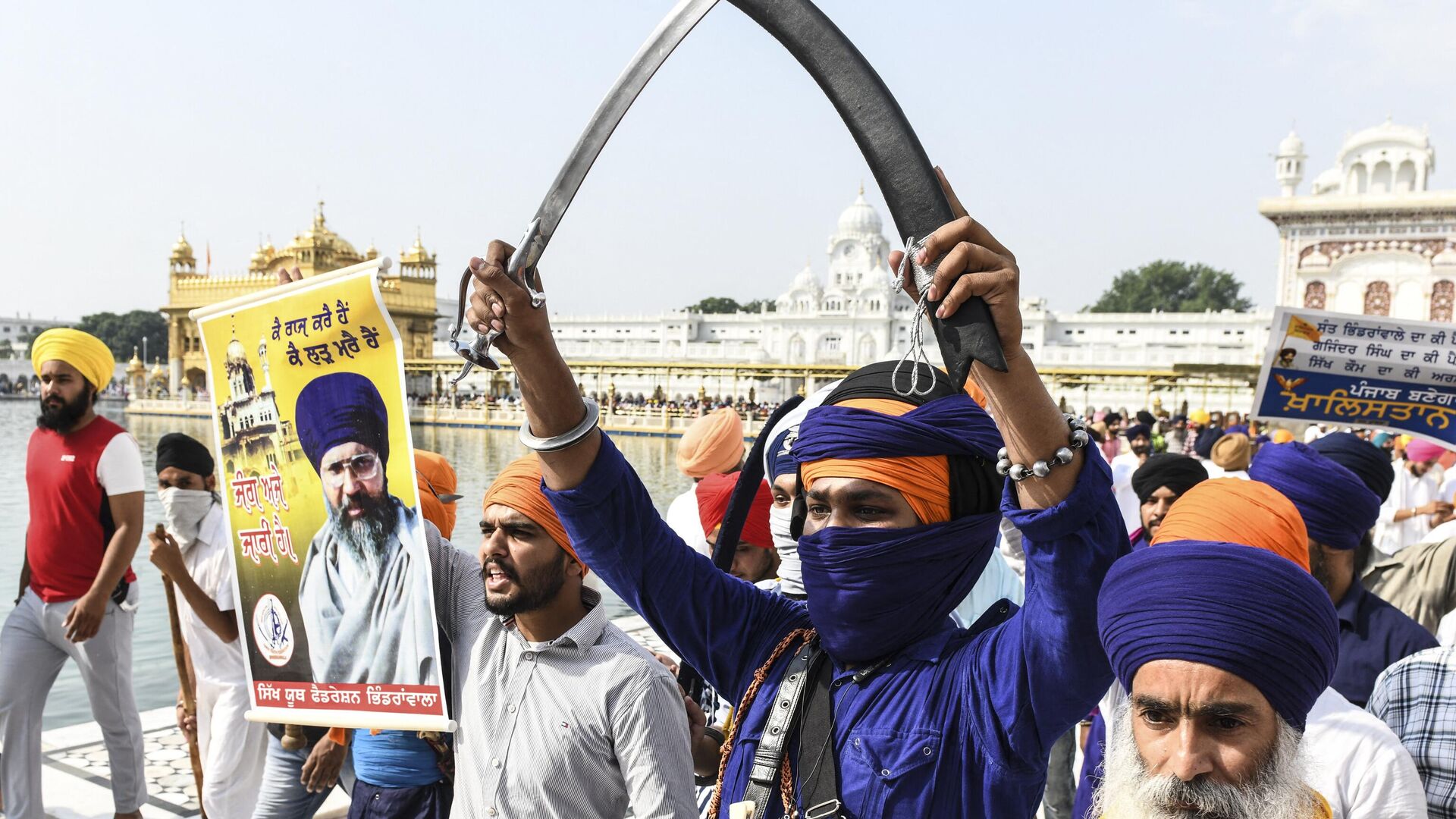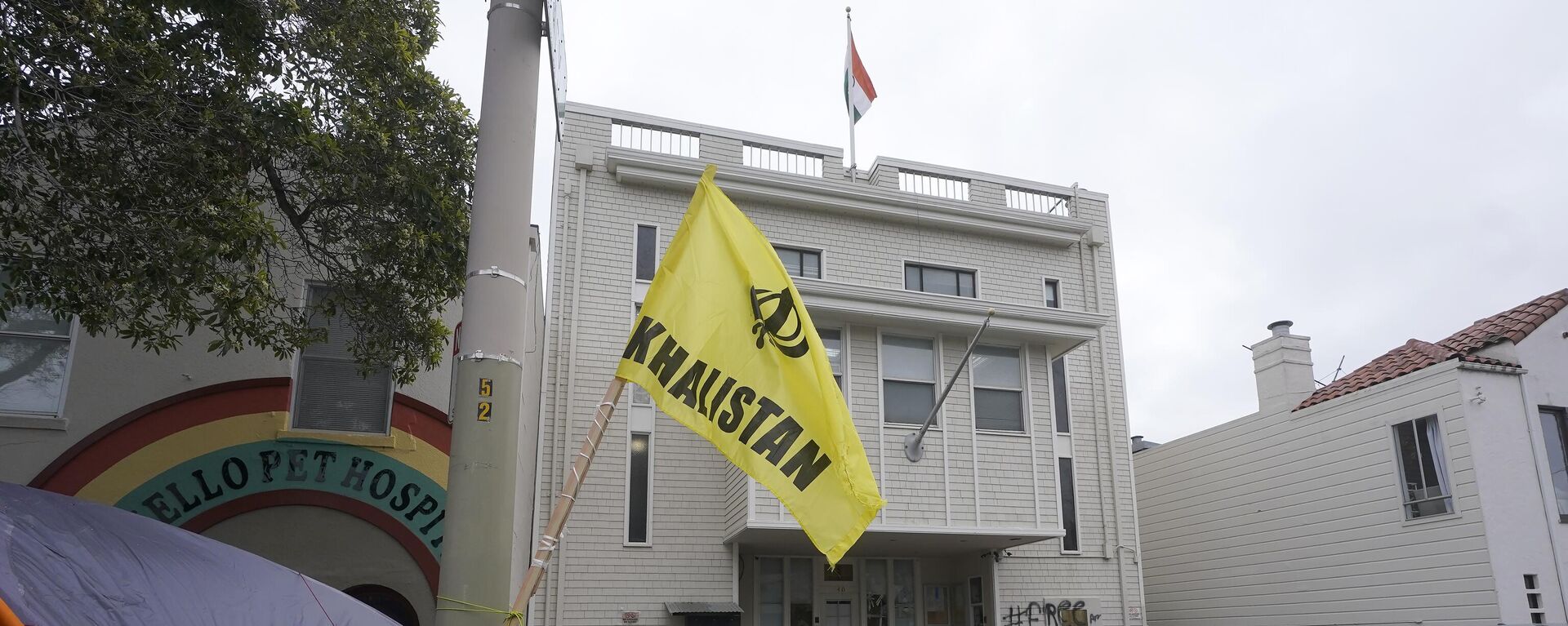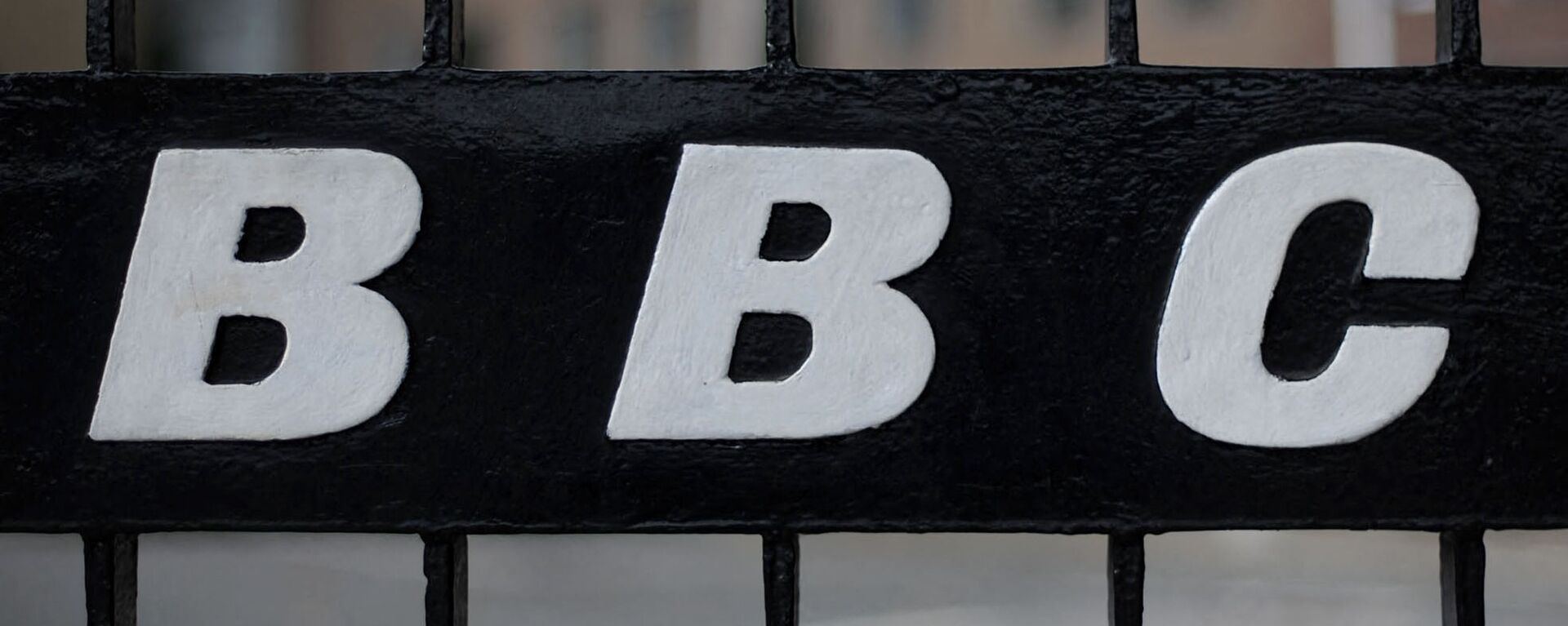https://sputniknews.in/20230321/why-west-offers-safe-havens-to-radical-pro--khalistan-sikhs--1245247.html
Why West Offers ‘Safe Havens' to Radical Pro-Khalistan Sikhs
Why West Offers ‘Safe Havens' to Radical Pro-Khalistan Sikhs
Sputnik India
Many extremist Sikhs, who espouse secessionist views favoring creation of Khalistan, or a separate Sikh state out of India, have found “safe havens” in western countries, an academic has told Sputnik.
2023-03-21T17:22+0530
2023-03-21T17:22+0530
2023-03-21T17:48+0530
sikhs
india
us
canada
united kingdom (uk)
khalistan movement
punjab
australia
colonial mindset
separatism
https://cdn1.img.sputniknews.in/img/07e7/03/15/1248235_0:160:3073:1888_1920x0_80_0_0_d256c3fde87d6b29b3ae5e407ddb79c0.jpg
A large number of extremist Sikhs who espouse secessionist views and favor the creation of Khalistan, or a separate Sikh state out of India, have found “safe havens” in western nations, an academic has told Sputnik.Sikhs form the predominant community in India’s Punjab state, numbering more than 25 million. The biggest Sikh communities outside Punjab are located in Canada, the United Kingdom, the US, and Australia.Anti-India Activities Flourish AbroadProf. Sreeram Chaulia, dean at India’s Jindal School of International Affairs, argued that the goal of this extremist diaspora of Sikhs is to “revive” the Khalistan movement in India. At the same time, there is “no support” for the Khalistani movement in Punjab, he claimed.“[Firstly,] There should be greater intelligence-sharing between these countries and New Delhi. Secondly, these countries should track down on the trail of funding received by Sikh organizations which promote a Khalistani agenda,” the expert added.His comments come after attacks on Indian diplomatic missions in London and San Francisco by Sikh extremists this week. New Delhi has lodged strong diplomatic protests against the UK and the US over security lapses that allowed Khalistani protestors to vandalize the missions.As a result, Indian authorities have banned the Twitter accounts of several Canadian public personalities, most prominently Jagmeet Singh. The coalition partner of Canadian Prime Minister Justin Trudeau has also been denied an Indian visa for his alleged pro-Khalistan leanings after he expressed concern over the police crackdown against Amritpal Singh.Meanwhile, New Delhi has on several occasions urged Australia to protect Indian interests from Sikh separatist elements to little effect.Khalistan Movement Has More ‘Resonance’ Outside IndiaAccording to Colonel (Retd.) Jaibans Singh, a defense expert in Punjab, a delayed police crackdown against Amritpal Singh caused harm in terms of “indoctrination of youth and the build-up of infrastructure."He stated that the Khalistani movement has “considerably more resonance in foreign shores than in Punjab."“The sentiment is given a boost by foreign forces inimical to India,” he stated.British Imperialists Fanned Khalistan Movement in IndiaBinay Kumar Singh, a senior research fellow of strategic studies at New Delhi-based think tank Dr. Syama Prasad Mookerjee Research Foundation, told Sputnik that the Khalistani movement has its roots in colonial India.He said that imperialist Brits “deliberately” overplayed differences between Sikhs and Hindus as part of their larger policy of “divide-and-rule."“They offered political patronage to Sikhs over Hindus, the same way they created rifts among Hindus and Muslims,” stated Binay Singh.The expert argued that there continues to be widespread sympathy for the idea of Khalistan among sections of the British political elite.He noted that a UK government review last month flagged the issue of “pro-Khalistan extremism” emerging from UK's Sikh communities.Binay Singh underscored that pro-Khalistani elements in western countries were deploying a “false narrative” that Indian Sikhs were being persecuted, which isn’t the case.He noted that the trend was visible in all western countries with large Sikh diasporas.Where Does Khalistani Movement Stem From?The Khalistani movement peaked in the 1980s when Jarnail Singh Bhindranwale and his armed supporters occupied the Golden Temple, one of the holiest sites of Sikhism, in 1984.The military crackdown by then-Prime Minister Indira Gandhi to flush out the insurgents, codenamed Operation Blue Star, led to Bhindrawala’s death.The military operation caused considerable outrage among the global Sikh community. The same year, Gandhi was assassinated by her Sikh bodyguards. The killing of the country's prime minister prompted anti-Sikh riots across the country, the worst sectarian clashes to date.In the 1980s and early 1990s, Indian police followed this by cracking down on sympathizers of the Khalistani movement in Punjab and across India.
https://sputniknews.in/20230321/san-francisco-consulate-attack-india-files-strong-protest-with-us--1238269.html
https://sputniknews.in/20230311/attempt-to-tarnish-modis-image-gujarat-passes-resolution-against-bbc-documentary-1133162.html
india
us
canada
united kingdom (uk)
punjab
australia
Sputnik India
feedback.hindi@sputniknews.com
+74956456601
MIA „Rossiya Segodnya“
2023
Dhairya Maheshwari
https://cdn1.img.sputniknews.in/img/07e6/0c/13/138962_0:0:641:640_100x100_80_0_0_2cb44360dbcdf6d84bf4b299cd045917.jpg
Dhairya Maheshwari
https://cdn1.img.sputniknews.in/img/07e6/0c/13/138962_0:0:641:640_100x100_80_0_0_2cb44360dbcdf6d84bf4b299cd045917.jpg
News
en_IN
Sputnik India
feedback.hindi@sputniknews.com
+74956456601
MIA „Rossiya Segodnya“
Sputnik India
feedback.hindi@sputniknews.com
+74956456601
MIA „Rossiya Segodnya“
Dhairya Maheshwari
https://cdn1.img.sputniknews.in/img/07e6/0c/13/138962_0:0:641:640_100x100_80_0_0_2cb44360dbcdf6d84bf4b299cd045917.jpg
khalistan, khalistan news, khalistan movement, amritpal singh news, amritpal singh latest news, punjab news, punjab internet news, indian high commission uk, indian high commission khalistan
khalistan, khalistan news, khalistan movement, amritpal singh news, amritpal singh latest news, punjab news, punjab internet news, indian high commission uk, indian high commission khalistan
Why West Offers ‘Safe Havens' to Radical Pro-Khalistan Sikhs
17:22 21.03.2023 (Updated: 17:48 21.03.2023) Sikh separatists demonstrated in western countries recently after Indian police launched a crackdown on radical preacher Amritpal Singh.
A large number of extremist Sikhs who espouse secessionist views and favor the creation of Khalistan, or a separate Sikh state out of India, have found “safe havens” in western nations, an academic has told Sputnik.
Sikhs form the predominant community in India’s Punjab state, numbering more than 25 million. The biggest Sikh communities outside Punjab are located in Canada, the United Kingdom, the US, and Australia.
Anti-India Activities Flourish Abroad
Prof. Sreeram Chaulia, dean at India’s Jindal School of International Affairs, argued that the goal of this extremist diaspora of Sikhs is to “revive” the Khalistan movement in India.
At the same time, there is “no support” for the Khalistani movement in Punjab, he claimed.
“These Sikhs have been making use of the civil and democratic liberties offered by their host countries to protest against India,” stated Chaulia.
“[Firstly,] There should be greater intelligence-sharing between these countries and New Delhi. Secondly, these countries should track down on the trail of funding received by Sikh organizations which promote a Khalistani agenda,” the expert added.
His comments come after attacks on Indian diplomatic missions in London and San Francisco by Sikh extremists this week. New Delhi has lodged strong diplomatic protests against the UK and the US over security lapses that allowed Khalistani protestors to vandalize the missions.
As a result, Indian authorities have banned the Twitter accounts of several Canadian public personalities, most prominently Jagmeet Singh.
The coalition partner of Canadian Prime Minister Justin Trudeau has also been denied an Indian visa for his alleged pro-Khalistan leanings after he expressed concern over the
police crackdown against Amritpal Singh.
Meanwhile, New Delhi has on several occasions urged Australia to protect Indian interests from Sikh separatist elements to little effect.
Khalistan Movement Has More ‘Resonance’ Outside India
According to Colonel (Retd.) Jaibans Singh, a defense expert in Punjab, a delayed police crackdown against Amritpal Singh caused harm in terms of “indoctrination of youth and the build-up of infrastructure."
“Early action would have greatly reduced the damage!” he stated. Jaibans Singh blamed the state government, led by the Aam Aadmi Party (AAP), for the current state of things in his home state (Punjab).
He stated that the Khalistani movement has “considerably more resonance in foreign shores than in Punjab."
“The sentiment is given a boost by foreign forces inimical to India,” he stated.
British Imperialists Fanned Khalistan Movement in India
Binay Kumar Singh, a senior research fellow of strategic studies at New Delhi-based think tank Dr. Syama Prasad Mookerjee Research Foundation, told Sputnik that the Khalistani movement has its roots in colonial India.
“The seeding of the idea of Khalistan was first propagated by British civil servant Max Arthur MaCauliffe, who translated the Sikh holy scripture Guru Granth Sahib to English, during his posting in India in the latter half of the 19th century,” explained Binay Singh, who is also an expert on national security matters.
He said that imperialist Brits “deliberately” overplayed differences between Sikhs and Hindus as part of their larger policy of “divide-and-rule."
“They offered political patronage to Sikhs over Hindus, the same way they created rifts among Hindus and Muslims,” stated Binay Singh.
The expert argued that there continues to be widespread sympathy for the idea of Khalistan among sections of the British political elite.
He noted that a UK government review last month flagged the issue of “pro-Khalistan extremism” emerging from UK's Sikh communities.
Binay Singh underscored that pro-Khalistani elements in western countries were deploying a “false narrative” that Indian Sikhs were being persecuted, which isn’t the case.
“But they are deploying such fifth-generation warfare (misinformation) techniques to recruit more people to their cause,” he stated.
He noted that the trend was visible in all western countries with large Sikh diasporas.
Where Does Khalistani Movement Stem From?
The Khalistani movement peaked in the 1980s when Jarnail Singh Bhindranwale and his armed supporters occupied the Golden Temple, one of the holiest sites of Sikhism, in 1984.
The military crackdown by then-Prime Minister Indira Gandhi to flush out the insurgents, codenamed Operation Blue Star, led to Bhindrawala’s death.
The military operation caused considerable outrage among the global Sikh community. The same year, Gandhi was assassinated by her Sikh bodyguards. The killing of the country's prime minister prompted anti-Sikh riots across the country, the worst sectarian clashes to date.
In the 1980s and early 1990s, Indian police followed this by cracking down on sympathizers of the Khalistani movement in Punjab and across India.




